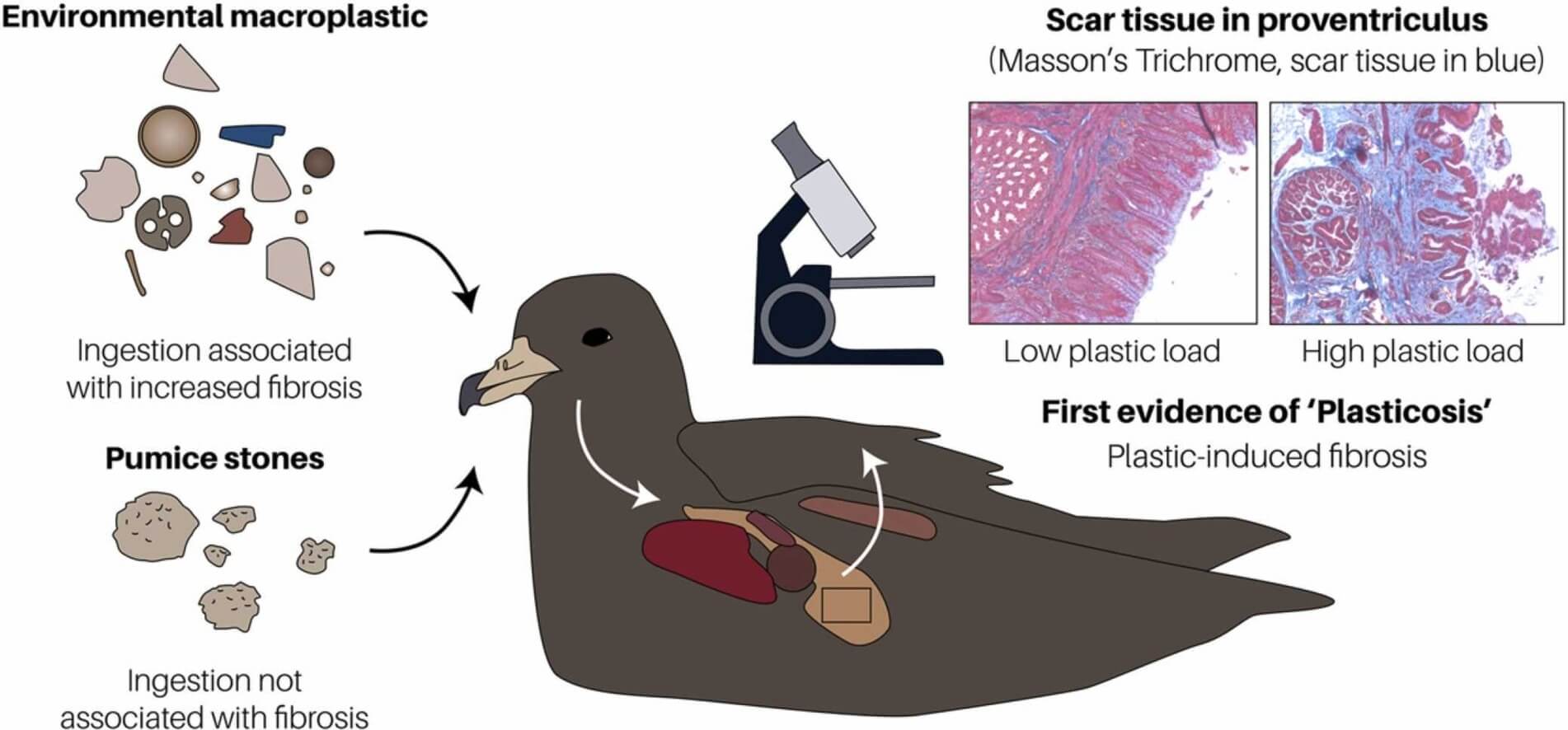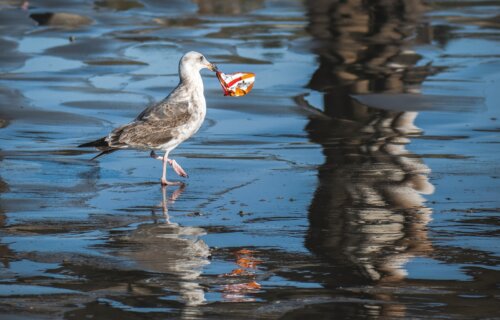LONDON — A new disease is killing seabirds and may be spreading to other species as well. Unlike other viruses that sweep through nature, this one has a very human source — plastic pollution. An international team is calling this new disease plasticosis, a condition with a direct link to the consumption of plastic particles in the environment.
Although previous studies have warned about the dangers of ingesting plastics which are leaking into our food and nature, this new report is looking at the specific issues which are now plaguing birds like the Flesh-footed Shearwater of Australia. The study finds that ingesting plastic directly affects the proventriculus organ – the first part of a bird’s stomach.
While other pieces of inorganic waste (like pumice stones) did not damage a bird’s stomach, autopsies show small pieces of plastic inflame the digestive tract, leaving the organ scarred and deformed. The damage got even worse in wildlife with more plastic in their bodies. Officially, the team says plasticosis, a fibrotic disease, can lead to digestion, growth, and survival issues.
“While these birds can look healthy on the outside, they’re not doing well on the inside,” says Dr. Alex Bond, a study co-author and Curator in Charge of Birds at the Natural History Museum, in a media release.
“This study is the first time that stomach tissue has been investigated in this way and shows that plastic consumption can cause serious damage to these birds’ digestive system.”

Plasticosis could cause babies to starve to death
“The tubular glands, which secrete digestive compounds, are perhaps the best example of the impact of plasticosis,” Dr. Bond explains in a statement. “When plastic is consumed, these glands get gradually more stunted until they eventually lose their tissue structure entirely at the highest levels of exposure.”
The team adds that losing these glands makes birds more vulnerable to infections and parasites. This plastic disease can also make it harder for the body to absorb vitamins in food. Scarring in the stomach makes the organ less flexible and less effective at digesting food.
For baby birds, ingesting plastic in food their mother brings can be especially deadly. Developing plasticosis as a chick can make it impossible for chicks hold much food — meaning the baby birds literally die of starvation. The study finds up to 90 percent of young birds have plastic fed to them by their parents.
Although the new study focuses on one species in Australia, researchers warn that plasticosis is likely affecting other species around the world, based on the scale of plastic pollution globally.
“Our research team has previously looked at how microplastics affect tissues,” Dr. Bond concludes. “We found these particles in organs such as the spleen and kidney, where they were associated with inflammation, fibrosis and a complete loss of structure.”
The findings appear in the Journal of Hazardous Materials.

